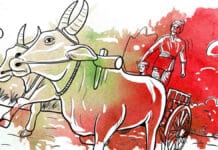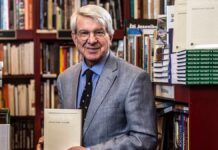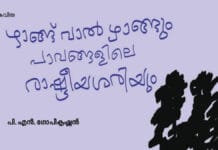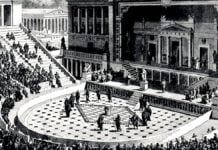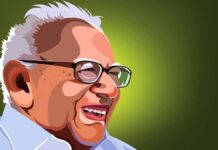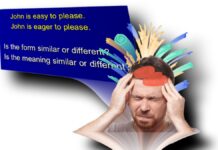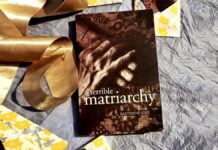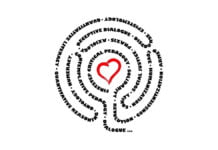Poykayil Yohannan (1879–1939), later known as Poykayil Appachan or Kumara Guru Devan, emerged as one of Kerala’s most radical social reformers and religious thinkers from an oppressed caste background. He was born into an agricultural labourer family bonded to a Christian landlord at Eraviperoor near Thiruvalla. Though he was a Marthomite Christian, conversion did not free him from caste discrimination and social subjugation.
Having received some basic education, Yohannan worked as a missionary assistant under the Church. However, his exposure to Christian institutions made him realise that even in the Church, his people—those from the former slave castes like Pulayas, Parayas, and Kuravas—continued to face discrimination and exclusion. He found no real connection between the message of Christ in the Bible and the lived experience of the converted enslaved people. This disillusionment marked the beginning of his lifelong quest for true knowledge and emancipation.
Poykayil Kumara Guru and the Questioning of Organised Religion
Poykayil Yohannan came to be known as Poykayil Kumara Guru when he broke away from Christianity in 1909, having realised that no existing religion—Christianity, Hinduism, or Islam—offered equality or dignity to the enslaved castes. He was the first reformer in Kerala to articulate that organised religions lacked mechanisms to erase caste identity and, in fact, reproduced social hierarchies within their structures.
In 1910, he founded the Prathyaksha Raksha Daiva Sabha (PRDS) at Eraviperoor near Thiruvalla. This spiritual and social movement aimed at the liberation of the “slave castes” from both social and mental bondage. For him, the issue was not merely one of social reform, but of epistemological liberation—a challenge to the way “true knowledge” itself was defined, controlled, and transmitted.
Kumara Guru thus became a historian of the enslaved, attempting to reinterpret Kerala’s past from the perspective of the oppressed. He taught that the slave castes were descendants of the ancient Dravidians, whose civilisation had been destroyed by the Aryan invasion, thereby linking their present oppression to historical and racial conquest.
Slavery, History, and the Politics of Knowledge
Modern scholars such as Dr P Sanal Mohan have analysed Kumara Guru’s ideas within the broader framework of Kerala’s modernity and the history of slavery. Mohan’s studies demonstrate that even within missionary Christianity—considered progressive—there was no complete escape from caste identity. The colonial and missionary reforms abolished slavery legally and offered education, but the social stigma of caste persisted.
Kumara Guru recognised that the root cause of Dalit oppression was the absence of a history of their own. The upper castes had historical narratives, religious texts, and myths that legitimised their identity, while the slave castes had been denied both history and written memory. His mission, therefore, was to create a new history and a new knowledge system for his people—one based on self-recognition and pride rather than religious dependency.
He told his followers, whom he called “children of slaves” (atima santhathikal), that they must recover their self-esteem through history, education, and collective organisation. In his speeches and writings, he linked the continuation of slavery under Brahminism to later forms of domination under Christianity.
The Role of the Prathyaksha Raksha Daiva Sabha (PRDS)
The PRDS, founded in 1910, became both a religious and social movement that aimed to regenerate the selfhood of the enslaved community. Kumara Guru Devan was revered as a prophet and spiritual guide. He combined spirituality with political awareness, teaching that prayer should lead to social awakening and action.
He composed over 1,500 poems and prayers, known for their emotional power and radical critique of religion and power. These compositions combined lament, resistance, and hope, helping his followers reflect on the trauma of slavery and the need for collective emancipation.
In his poetry, he condemned false religions and empty rituals that ignored the suffering of the oppressed. For instance, in one of his poems, he wrote:
“Though I read and reflected on the whole Old Testament,
I never knew the truth—O, I never knew the truth.”
Through such verses, he questioned the monopoly of scriptural “truth” and asserted that knowledge and salvation could not come from alien religions that denied his people humanity.
His famous lament— “I behold the histories of many races in Kerala, but none about my race”— expressed the anguish of a people excluded from history. His movement, therefore, sought to imagine and construct a new history—one that would empower the Dalits to enter modernity with self-respect.
Historical Reconstruction as Emancipation
Through the PRDS, Kumara Guru created a new form of religious practice centred on family, community, and memory. For centuries, slavery had destroyed the institution of family among the oppressed, as people were bought and sold, separating parents and children. The PRDS reintroduced the idea of family as a sacred institution—both as an act of remembrance and as an assertion of dignity.
The Sabha’s rituals and festivals symbolised the reconstruction of identity and history. The members used Sanskritic Malayalam in their prayers and songs to claim access to a linguistic and cultural domain long denied to them. In the PRDS, religion became a means of knowledge production—a way to narrate history and reshape identity, not merely a form of worship.
During the PRDS ceremonies, such as Rakshanirnayam (Determination of Salvation), young members were initiated into the Sabha through dramatic retellings of slave experiences. This ritual helped transform personal suffering into collective memory and historical awareness. Through such practices, the PRDS created new subjectivities, turning victims into agents of history and knowledge.
The Idea of ‘True Knowledge’
Poykayil Appachan questioned the very foundation of what counts as “true knowledge.” For him, the knowledge systems of the dominant castes—whether Brahmanical, Christian, or colonial—were instruments of exclusion. They claimed to represent truth but were rooted in the denial of Dalit experience.
True knowledge, according to him, was not textual or scriptural but experiential—born from the lived reality of the oppressed. His songs, therefore, were not mere religious hymns but acts of knowledge creation that recorded forgotten histories and expressed truths excluded from formal education and scripture.
Through his poetry, religious rituals, and organisation, Poykayil Appachan turned religion into a tool of resistance, history into a form of self-knowledge, and memory into political awakening.
The Modernity of PRDS and Dalit Knowledge
The movement led by Poykayil Appachan marked the beginning of Dalit modernity in Kerala. It introduced new ideas of work, time, cleanliness, family, thrift, and discipline, drawing partially from missionary modernity but transforming them into tools of self-determination.
The PRDS was thus not only a religious revival but also a social revolution that redefined modernity itself—from a colonial import to a collective awakening from within. Through this process, a new community emerged—one that possessed its own symbols, history, and sense of dignity.
Ritual practices such as wearing the traditional labourers’ attire (kacha thorth and thoppippala) on significant days served as reminders of the people’s historical suffering while reaffirming their agency and identity in the present.
Poykayil Appachan’s philosophy addressed the problem of “true knowledge” by exposing how dominant religious and social systems denied truth to the oppressed. His Prathyaksha Raksha Daiva Sabha offered an alternative path: a religion of equality, a history of dignity, and a knowledge rooted in lived experience.
Through his poems, rituals, and community organisation, he rewrote history from below, transforming silence into voice, oppression into self-awareness, and faith into resistance. His movement was not merely religious—it was an epistemological revolution, redefining what it means to know, to believe, and to be human.
- Poykayil Yohannan (Poykayil Appachan) was a Dalit reformer born in 1879 at Eraviperoor, Thiruvalla.
- He realised that conversion to Christianity did not free his people from caste oppression.
- In 1909, he left the Church and founded the Prathyaksha Raksha Daiva Sabha (PRDS) in 1910.
- He argued that no organised religion erased the identity of slave castes; instead, all perpetuated hierarchy.
- His movement aimed to recover Dalit history and create new knowledge systems through songs, prayers, and rituals.
- He saw true knowledge as experiential and collective, not textual or institutional.
- His poems condemned religious hypocrisy and mourned the absence of Dalit history.
- The PRDS centred worship on family and community, reclaiming what slavery had destroyed.
- Through the PRDS, Dalits reconstructed their identity and became active subjects of history.
- His work transformed religion into knowledge, knowledge into power, and power into freedom.










